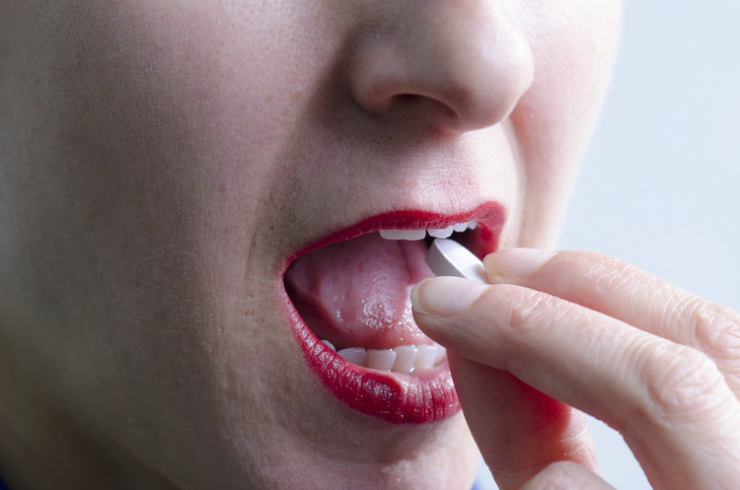Oramed Pharmaceuticals (NASDAQ:ORMP) is awaiting a decision from the FDA, possibly later this week, to conduct a sub-study of the safety of its oral insulin candidate, ORMD-0801, before proceeding to a large, multi-center Phase 2 clinical trial later this year.
“Approving a clinical trial in the U.S. for oral insulin is a big deal,” CEO Nadav Kidron says in an interview with BioTuesdays.com. “We are ready to start the sub-study right away.”
On April 12, Oramed submitted a new IND application for the sub-study, which suggests that a decision could be made by the end of this week. The filing was in response to an initial IND for a Phase 2 trial that Oramed had filed at the end of December. For the sub-study, Oramed plans to enroll 30 Type 2 diabetic patients in a controlled in-patient setting for up to one week, with data likely available in four-to-five months.
The company has already administered nearly 1,500 doses of ORMD-0801 to 131 Type 1 and Type 2 diabetics as well as to healthy volunteers. “It has shown a good safety profile and achieved the pharmacokinetics that we were looking for,” Mr. Kidron says.
Founded in 2006, Oramed has developed a proprietary platform technology for the oral delivery of drugs that are currently available only through injection, such as insulin. The technology facilitates the passage of insulin into the bloodstream, enabling it to bypass degradation in the digestive system, overcoming the main obstacle of oral insulin delivery.
In addition, Mr. Kidron says the company’s platform technology could be used for the oral delivery of other peptides, such as flu vaccine, for example.
He notes that the proof-of-concept for Oramed’s technology has been established in both preclinical and clinical trials in patients with Type 1 and Type 2 diabetes. “With an oral delivery system, insulin can become an earlier treatment for people diagnosed with diabetes. Not only is it easier to administer, but it also works in a more physiological manner than by injection.”
Mr. Kidron emphasizes that the company’s oral insulin is not intended to be a substitute for insulin injections but, rather, a new earlier treatment option. “This is a unique initial indication,” he contends, adding that many previous unsuccessful attempts with oral or inhaled insulin were intended to replace injections.
According to Mr. Kidron, ORMD-0801 is designed to focus on the defect it can optimally influence: excessive night-time production of glucose from the liver. The company believes that oral insulin would best be targeted at patients with elevated fasting blood glucose (FBG) in the morning, which is a major issue in Type 2 diabetes. Existing treatments to correct elevated FBG are suboptimal.
Mr. Kidron points out that, through night-time dosing of ORMD-0801 to reduce FBG, ORMD-0801 has the potential to help patients maintain better balance of their glucose levels for years before they become insulin-dependent. Ideally, the drug would be prescribed while patients are attempting to control their disease through diet, exercise and lifestyle modification and before they begin oral medications.
“Oral insulin is more than about preventing degradation in the gastrointestinal tract,” Mr. Kidron explains. “When you want to be a substitute to injections, you must be so accurate with timing and dosing, for example. We solved the problem of degradation, because only a certain amount of what we deliver will make it into the liver, but it is good enough for our indication, which is why it is such a breakthrough. We aimed lower, and it works well.”
The proposed Phase 2 trial of ORMD-0801 would enroll 147 Type 2 diabetic patients at 10-to-15 sites in the U.S., with the treatment period lasting 28 days. Mr. Kidron says data could be released in the second half of 2014.
In addition to ORMD-0801, Oramed is also developing an oral GLP-1 analog, known as exenatide, and a combination therapy of ORMD-0801 and exenatide.
GLP-1, or glucagon-like peptide-1, possesses a number of physiological properties that make it and its analogs the subject of intensive investigation as a potential treatment for diabetes. Among other things, it aids in the balance of blood sugar levels by decreasing glucose levels, especially after a meal; promotes weight loss; and does not cause hypoglycemia.
Today, the medication is given to Type 2 diabetics via injection only. However, injectable GLP-1 also causes severe nausea.
Oramed has achieved positive results with its exenatide in preclinical trials and with healthy volunteers, Mr. Kidron says, adding that “results thus far have indicated no nausea in human subjects.” The company is currently testing the drug in Israel and hopes to begin the process of filing an application for an IND in the U.S. later this year.
He says Oramed is in touch with several potential partners and expects to be ready to partner ORMD-0801 at the end of the Phase 2 trial. “A partnering deal with exenatide could happen earlier than that,” he adds.
“Oral insulin represents a new approach to managing the disease, so we should be able to achieve a much better deal if we can show results on a much larger group of individuals than we have up to now.”







